Geza Rohrig is an Hungarian poet and actor who garnered international attention for the lead role he played in the 2015 film Son of Saul. The film won the Grand Prix at the 2015 Cannes Film Festival, the Golden Globe for Best Foreign Language Film and the Academy Award for Best Foreign Language Film. I recently met the 49-year-old teacher and father of four sporting a yarmulka and an untrimmed beard in his Bronx home. Rafi (his Hebrew name) introduced me to his twin two-year olds, Zusha and Zelda.
Who are your twins named for?
Zusha is for Reb Zusha of Anipoli. I cherish his stories.
Zelda is for Zelda Schneerson, the poet.
You just returned from a visit to Krakow, Poland where you delivered the closing address at the Conrad Festival, which, as I understand, is one of Europe’s most prestigious literary/art events. What was your message to the audience?
It is hard to sum up a half-hour speech. I spoke about freedom. You need tremendous discipline to be free. Freedom is the ethos of bearing responsibility. There could be nobody freer than two lovers, correct? But love comes with commitment. Freedom is not a right; it’s our most fundamental duty. Without it, everything loses meaning. In short, the soul of the law is freedom, the body of freedom is the law. Where there is no freedom, there is no real order. And where there’s no order, there’s no real freedom.
You are well published in Hungary with eight books to your name. What is your poetry about? Who are you readers?
My first collection of poetry, Cremationbook, was published in 1995, on the 50th anniversary of the Budapest Ghetto’s liberation. It was published in Germany too and it received some awards. My other books are about anything and everything that falls under the human experience. I write for ordinary people—I don’t want to write coded poetry that only the sophisticated can decipher. The film has now brought more attention to my poems, so I really cannot complain about the number of my readers.
In the movie Son of Saul, you play a Sonderkommando who becomes obsessed with giving a dead boy a ritual Jewish burial. This is a very dark, depressing film. What was it about this script that appealed to you?
The idea that there is something more important than survival. Everyone wanted to escape, to break out of the hell they were in, which is legitimate. But it’s an animalistic move. If the house is burning, even the cat will jump from the window.
Saul goes a level higher than that. He says, “Survival is not all there is. There must be something more than survival.” I think that’s a very Jewish belief.
What he attempts to do in those circumstances is altogether irrational.
It is. But everything that the Sonderkommandos were forced to do was irrational. Jews were being murdered on an industrial level, and their job was to move the dead from the gas chambers to the crematoria. So what kind of a response can one have to this?
He couldn’t save the living. He couldn’t even bury the dead. So he decides to disregard the situation. There are very few things that are, for us as human beings, simply not negotiable: to feed the hungry, to clothe the naked, and to bury the dead. He couldn’t give the boy his bread because he was dead. It was as if he was saying, “The only thing I can do for you is to bury you, to arrange a kaddish for you.” This one mitzvah became his connection to sanity.
I have been with the chevra kadisha [Jewish burial society] for many years, doing tahara and shmira [washing and guarding the body of the deceased and preparing it for burial in accordance with Jewish law]. So I really connected to the script.
What made you get involved with tahara?
It began when I was a teenager in Hungary when someone from the minyan called me. They needed a third person. I now do it at least two times a week. It’s transformative, in a way more than an average davening, which can become a bit mechanical at times. Every tahara is different and so personal. I think if we want to keep the right balance between humility and self esteem, death should never leave our mind entirely.
As a teenager, you started an underground punk band called HuckRebelly, and you were expelled from high school because of your anti-communist activity. Did you have any religious affiliation as you were growing up?
Not really. My grandpa was the first person who took me to a Rosh Hashanah service. It was a terrible experience. I was 14, and the rabbi said that Hitler’s plan was to kill every last Jew on the face of the earth, so we shouldn’t be here. It’s by G-d’s grace that we are here.
Then he said that now that we are here we have to earn our right to live. I thought of my non-Jewish classmates and wondered, Why do I have to earn it? Because my family members were murdered so I have to earn my right to live?
How about if G-d needs to earn my grandpa’s faith after all this? I was not interested in going to shul for a good while at all.
What changed?
I was in Poland studying for my masters in philosophy. It was 1987, still during communism. I had planned to go to Auschwitz but I put it off until the end of my year there because I knew it would be intense. I went there knowing exactly which barrack I would go to: Barrack 13 in Section E. I knew where my family was, and I just wanted to see it.
But instead of being upset I felt some sort of a healing going on, and I wanted to spend more time there. So I went to the closest apartment building asking people if there was a room to rent and they said, “Here? Are you kidding? Who wants to come here?”
But I rented a room for a month. And I went back to the lager every day.
What did you do there every day?
I davened. It wasn’t the usual davening [praying]. I didn’t know how to daven in Hebrew yet. But there I was, a freezing question mark, a pulsing wound. And I felt answered. I felt heard. I wasn’t just in pain. I was in a dialogue.
Soon I realized that the only answer to this place is to be one of them whom the Nazis didn’t want to survive. I wanted to look like, think like, and be like most Jews who were murdered here.
I might have expected it would rather make you want to disassociate with Jewish identity because of all these negative memories.
Growing up in an atheistic dictatorship I didn’t have the option to open the envelope, so to speak, to get my heritage. But I was certain that I would not throw it away without knowing what it was.
Your father passed away when you were just a small child.
I lost him when I was four years old, so obviously there was an emptiness, a lack of something that was driving me. I felt like I was nobody’s son. It’s important to have footsteps in front of you, even if you want to go the other way. If you have your father’s footsteps at least you know where the other way is. I realized that I could not even make an intelligent decision about if I wanted to be Jewish or not until I knew what it is. So I went straight from Poland to Jerusalem.
Was it difficult for you, an accomplished poet, a writer, and a musician, to embrace yiddishkeit?
As a teenager, I had reservations about institutional religion. I never really liked hierarchy. I felt like they tried to box you in, they wouldn’t be appreciative of having your own opinion or approach. And I felt that my background, my soul, my story, should be dignified because we are all different for a reason.
Then it turned out that yes, Judaism is pretty strict when it comes to practicing, but when it comes to what beliefs you hold or how you go about things, there is a plurality and there’s a fantastically rich and colorful way of thinking in the Talmud. Rav A doesn’t agree with Rav B and they are still respectful to each other. And even the opinions that are not followed are written and preserved and still learned because there is a value of a respectful disagreement and different views. I found that super attractive.
How did you come to Chabad?
I was interested in Chasidut but the yeshiva in Har Nof, Jerusalem that I attended did not offer Chasidut, so my rosh yeshiva, Rabbi Baruch Horowitz, of blessed memory, suggested that Chabad might be the right fit for me. In 1991 I arrived in New York where Rabbi Yechezkel Lebovic and his wife, Pearl, offered me the chance to learn in Yeshivah Tiferet Bachurim in Morristown, New Jersey.
I had a bris. I got into the mishna class and started the routine like everybody else, except I was learning stuff that generally Chabad children learn at age five, six. But I advanced pretty well. My commitment was strong.
Then I began to study Chasidut which was new to me. I was thirsty to learn. I had a mashpia ruchanit, (spiritual mentor), Rabbi Dovid Vichnin, of blessed memory. He had an academic background, having studied at Yale, so I think he really understood where we were all coming from. He gave me time every day, to ask questions and discuss whatever was on my mind.
You mention “davening” a number of times. How did you integrate prayer into your life?
When I first started to daven, I was slow because Hebrew was all new to me, and the people around me were doing Shemone Esrei [the Amidah] in five minutes. I had a huge struggle with the Shema Koleinu blessing because I understood that this is where you relate to Hashem with your own requests, and there was a lot I needed to ask for others. So I learned to daven faster.
But the real issue was, what should my focus be? And I realized that davening is not about begging. You daven because you are, because you woke up; you see, you move. It’s about gratefulness and wonder about the complexity and the drama of the universe. Of course when you are in trouble you scream, but only then. That’s not what davening is for.
Do you believe that people “change?”
I don’t think people should really change. Can we become more G-dly? Sure, but we don’t have to jump out of our skin for that. The spark, the pintele yid is in our neshama from the get-go. We just need to connect and let it happen.
Is that a guarantee for happiness?
To say “be Jewish and you will be happy” is to sell Judaism cheaply and I would never do that. I believe that you have to find something in your life for which you are willing to give up your happiness. Only then will you be happy. We don’t look for happiness as a goal—that’s a guarantee for failure. Because we were put here on this earth to serve. And joy, simcha, comes from avodah [service].
Do you feel that being an observant Jew informed the way you played your role in the film?
Absolutely. It’s hard to say specifically how, but I hope that twenty years of Torah study has affected me. It wasn’t like during the shooting of the movie I suddenly thought of a concrete concept. It doesn’t work that way. But it’s in the person I have become during the years. In the everyday choices I make. It’s in the fabric of my being.
The movie is difficult to watch. It is extremely intense for the viewer. With the camera on your face filling almost every frame in that hellish setting, how did you keep your sanity during the filming?
It was taxing. In the darkest moments—remember, I was playing a Sonderkommando whose job it was to escort thousands of people day after day to the gas chambers and then to burn their bodies in the crematorium—I often thought, “Dear G-d, where were you? How could you allow this to happen? Why were you so deaf to the cries and the prayers of all the yidden here?”
It’s a question that paralyzes your faith. So I’d remind myself of the living example we had in the Lubavitcher Rebbe who saw the destruction. His brother Dov Ber, perished at the hands of the Nazis so he knew, in the most personal way, what Jews went through in those years. And yet he became an energetic leader inspiring us to look forward instead of falling into the crisis, which is what happened to so many people who were haunted by the Shoah.
I often had an inclination to be depressed, to sink into despair during the shooting. It was dark. These were the times when I found myself relying on the Rebbe’s example. That reallyhelped me come out of it.
But your question still begs an answer.
Yes, but I don’t have it. Ilu yedativ, heyitiv. “If I would understand Him, I would be Him.”
And that satisfies?
I’m not trying to say that it’s ok with me, G-d forbid. Never, no. But we have to know our place. In this world of space and time we simply can’t understand and we can’t accept. I was with the late Elie Wiesel a few weeks before he passed away. He struggled with this question as so many others. I wish I had a magical argument to take all the doubts out of people’s minds.
But you? You are not paralyzed by it.
I’m not.
Why?
I only can speak of where I’m at. It’s unimaginable for me to stop being who we are and to finish ourselves off as Jews. There’s this paradox—on the one hand it’s clear that it’s really impossible to come to terms with what happened. On the other hand, let’s not forget that against the odds we are still here. Not only are we here, but yiddishkeit is alive. So this is exactly where I want to be.
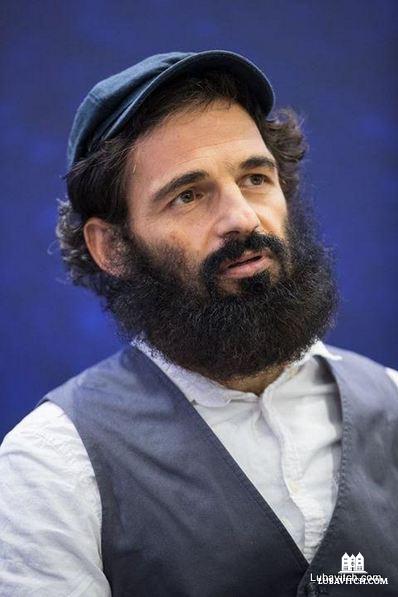

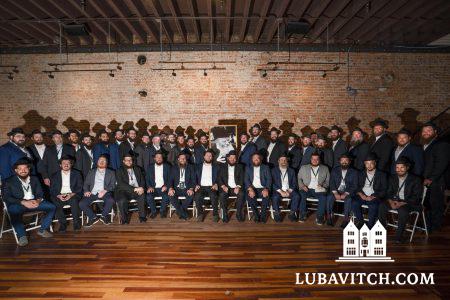

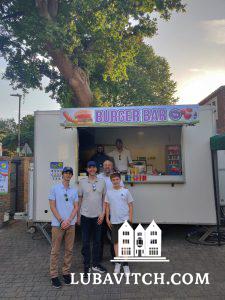
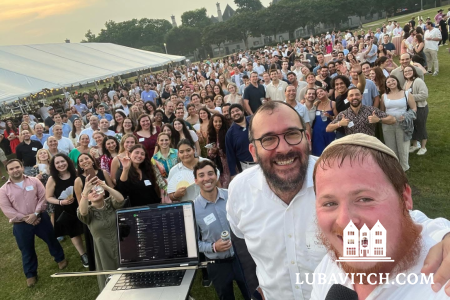
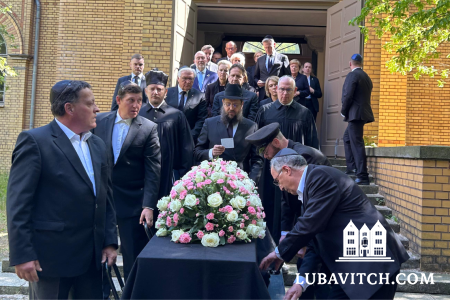
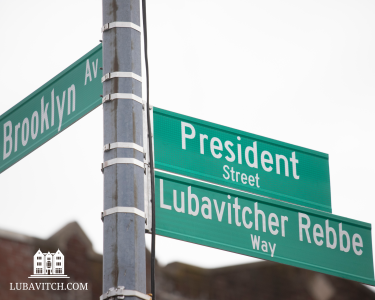
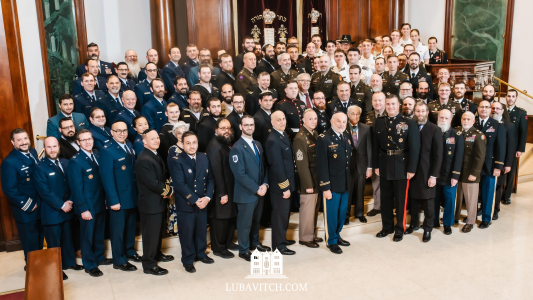

Be the first to write a comment.